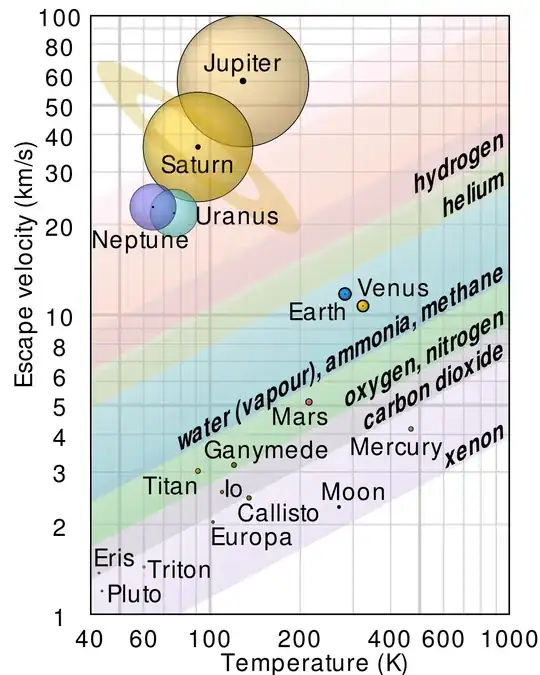The atmosphere will stay
It has become something of a running joke to see how many times I have posted this picture.

The mass of Earth will stay the same, so will its escape velocity. The temperature will drop, moving to the left on the chart. This will make the Earth's atmosphere easier to hold on to. In fact, the Earth will retain helium and even hydrogen too, after it gets cold enough.
The core will stay hot
It won't cool down that fast. The Earth's core has essentially been cooling down for the past 4 billion years, and still is pretty hot. Two laws govern here.
The loss of energy from the surface is dominated by the Stefan-Boltzman law for blackbody energy emission in the infrared range. The equation for this emission is
$$j* = \epsilon\sigma T^4.$$
Here, $j*$ is radiant emittance, $\epsilon$ and $\sigma$ are constants, and $T$ is temperature. As temperature decreases, emittance decreases as the fourth power of $T$.
As the planets surface drops from its current ~285 K to 200 K, heat loss drops by a factor of 4. By the time temps get down to 150 K, heat loss drops by another factor of 3. The cooler it gets, the less the Earth will cool.
This also applies to heat transfer from the mantle to the crust. The heat equation in one dimension is
$$\mathbf{q} = -k\Delta u,$$
where $\mathbf{q}$ is power of the heat transfer, $k$ is a constant, and $\Delta u$ is the temperature difference across the mantle, in this case. The outer core is 4000 K; the surface is about 285 K. Since heat transfer scales linearly with temperature differential, if the surface temps drop to 200 K, then heat transfer will increase by a factor of $1.022$.
So basically, the crust will stop losing energy quickly as it cools, but heat loss from the core won't speed up much at all. So, the core will remain hot for billions more years. No promise of plate tectonics or a magnetosphere for any length of time, but both seem likely for many millions of years.
The oceans will freeze
I estimated in this post that in a little under a year the oceans would freeze over to a depth of tens if not hundreds of meters.
Once the top layer freezes and temperature drops, heat loss to space will be reduced significantly. The rest of the oceans store a lot of energy and will take decades to centuries to freeze solid.
